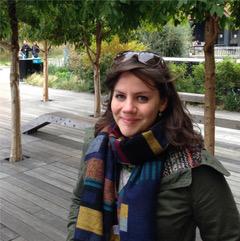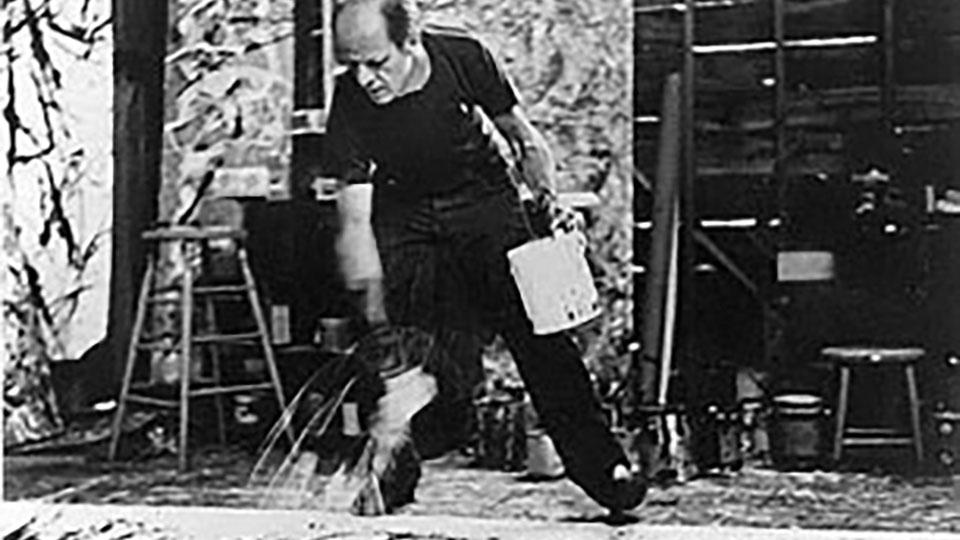Park, Suhyun; Williams, Louis and Chamberlain, Rebecca. 2022. Global Saccadic Eye Movements Characterise Artists’ Visual Attention While Drawing. Empirical Studies of the Arts, 40(2), pp. 228-244. ISSN 0276-2374
Bignardi, Giacomo; Chamberlain, Rebecca; Kevenaar, Sofieke T; Tamimy, Zenab and Boomsma, Dorret I. 2022. On the etiology of aesthetic chills: a behavioral genetic study. Scientific Reports, 12, 3247. ISSN 2045-2322
Chamberlain, Rebecca; Orgs, Guido; Mayer, Veronika; Chana, Kirren; Berio, Daniel and Leymarie, Frederic Fol. 2022. A dot that went for a walk: People prefer lines drawn with human-like kinematics. British Journal of Psychology, 113(1), pp. 105-130. ISSN 0007-1269
Chamberlain, Rebecca; Mullin, Caitlin; Berio, Daniel; Leymarie, Frederic Fol and Wagemans, Johan. 2022. Aesthetics of graffiti: Comparison to text-based and pictorial artforms. Empirical Studies of the Arts, 40(1), pp. 21-36. ISSN 0276-2374
Chamberlain, Rebecca and Pepperell, Robert. 2021. Slow Looking at Slow Art: the Work of Pierre Bonnard. Leonardo, 54(6), pp. 615-618. ISSN 0024-094X
Drake, Jennifer; Riccio, A; Chamberlain, Rebecca and Kozbelt, Aaron. 2021. Artists have superior local and global processing abilities but show a preference for initially drawing globally. Psychology of Aesthetics, Creativity and the Arts, ISSN 1931-3896
Chamberlain, Rebecca; Kozbelt, Aaron; Drake, Jennifer and Wagemans, Johan. 2021. Learning to See by Learning to Draw: A Longitudinal Analysis of the Relationship Between Representational Drawing Training and Visuospatial Skill. Psychology of Aesthetics, Creativity, and the Arts, 15(1), pp. 76-90. ISSN 1931-3896
Chamberlain, Rebecca; Drake, Jennifer; Kozbelt, Aaron; Hickman, Rachel; Siev, Joseph and Wagemans, Johan. 2019. Artists as experts in visual cognition: An update. Psychology of Aesthetics, Creativity, and the Arts, 13(1), pp. 58-73. ISSN 1931-3896
Chamberlain, Rebecca. 2018. Drawing as a Window onto Expertise. Current Directions in Psychological Science, 27(6), pp. 501-507. ISSN 0963-7214
Chamberlain, Rebecca; Brunswick, Nicola; Siev, Joseph and McManus, I. C.. 2018. Meta-analytic findings reveal lower means but higher variances in visuo-spatial ability in dyslexia. British Journal of Psychology, 109(4), pp. 897-916. ISSN 0007-1269
van der Hallen, Ruth; Chamberlain, Rebecca; De-Wit, Lee and Wagemans, Johan. 2018. Superior disembedding in children with ASD: New tests using abstract, meaningful, and 3D contexts. Journal of Autism and Developmental Disorders, 48(7), pp. 2478-2489. ISSN 0162-3257
Chamberlain, Rebecca; Mullin, Caitlin; Scheerlinck, Bram and Wagemans, Johan. 2018. Putting the Art in Artificial: Aesthetic Responses to Computer-generated Art. Psychology of Aesthetics, Creativity and the Arts, 12(2), pp. 177-192. ISSN 1931-3896
Chamberlain, Rebecca; Swinnen, Lena; Heeren, Sarah and Wagemans, Johan. 2018. Perceptual flexibility is coupled with reduced executive inhibition in students of the visual arts. British Journal of Psychology, 109(2), pp. 244-258. ISSN 0007-1269
Huygelier, Hanne; van der Hallen, Ruth; Wagemans, Johan; De-Wit, Lee and Chamberlain, Rebecca. 2018. The Leuven Embedded Figures Test (L-EFT): measuring perception, intelligence or executive function? PeerJ,
Chamberlain, Rebecca; van der Hallen, Ruth; Huygelier, Hanne; Van de Cruys, Sander and Wagemans, Johan. 2017. Local-global processing bias is not a unitary individual difference in visual processing. Vision Research, 141, pp. 247-257. ISSN 0042-6989
Van de Cruys, Sander; Chamberlain, Rebecca and Wagemans, Johan. 2017. Tuning in to art: A predictive processing account of negative emotion in art (commentary). Behavioral and Brain Sciences, 40, e377. ISSN 0140-525X
De-Wit, Lee; Huygelier, Hanne; van der Hallen, Ruth; Chamberlain, Rebecca and Wagemans, Johan. 2017. Developing The Leuven Embedded Figures Test (L-EFT): Testing the stimulus features that influence embedding. PeerJ, 5, e2862.
Chamberlain, Rebecca and Wagemans, Johan. 2016. The genesis of errors in drawing. Neuroscience and Biobehavioral Reviews, 65, pp. 195-207. ISSN 0149-7634
Chamberlain, Rebecca and Wagemans, Johan. 2015. Visual arts training is linked to flexible attention to local and global levels of visual stimuli. Acta Psychologica, 161, pp. 185-197. ISSN 0001-6918
Chamberlain, Rebecca; McManus, I. C.; Brunswick, Nicola; Rankin, Qona and Riley, Howard. 2015. Scratching the surface: Practice, personality, approaches to learning and the acquisition of high level representational drawing skill. Psychology of Aesthetics, Creativity, and the Arts, 9(4), pp. 451-462. ISSN 1931-3896
Cappelletti, Marinella; Chamberlain, Rebecca; Freemana, Elliot D.; Kanai, Ryota; Butterworth, Brian; Price, Cathy J. and Rees, Geraint. 2014. Commonalities for Numerical and Continuous Quantity Skills at Temporo-parietal Junction. Journal of Cognitive Neuroscience, 26(5), pp. 986-999. ISSN 0898-929X
Chamberlain, Rebecca; McManus, I. C.; Brunswick, Nicola; Rankin, Qona; Riley, Howard and Kanai, Ryota. 2014. Drawing on the right side of the brain: a voxel-based morphometry analysis of observational drawing. NeuroImage, 96(1), pp. 167-173. ISSN 1053-8119
Chamberlain, Rebecca; McManus, I. C.; Riley, Howard; Rankin, Qona and Brunswick, Nicola. 2014. Cain’s House Revisited and Revived: Extending Theory and Methodology for Quantifying Drawing Accuracy. Psychology of Aesthetics, Creativity and the Arts, 8(2), pp. 152-167. ISSN 1931-3896
Chamberlain, Rebecca; McManus, I. C.; Riley, Howard; Rankin, Qona and Brunswick, Nicola. 2013. Local processing enhancements in superior observational drawing are due to enhanced perceptual functioning, not weak central coherence. The Quarterly Journal of Experimental Psychology, 66(7), pp. 1448-1466. ISSN 1747-0218
McManus, I. C.; Loo, Phik-Wern; Chamberlain, Rebecca; Riley, Howard and Brunswick, Nicola. 2011. Does shape constancy relate to drawing accuracy? Two failures to replicate. Empirical Studies of the Arts, 29(2), pp. 191-208. ISSN 0276-2374
McManus, I. C.; Chamberlain, Rebecca; Loo, Phik-Wern; Rankin, Qona; Riley, Howard and Brunswick, Nicola. 2010. Art students who cannot draw: Exploring the relations between drawing ability, visual memory, accuracy of copying and dyslexia. Psychology of Aesthetics Creativity and the Arts, 4(1), pp. 18-30. ISSN 1931-3896

